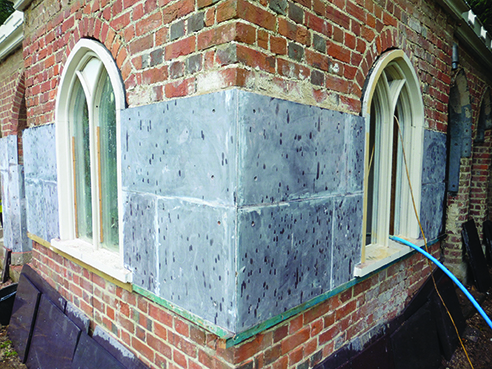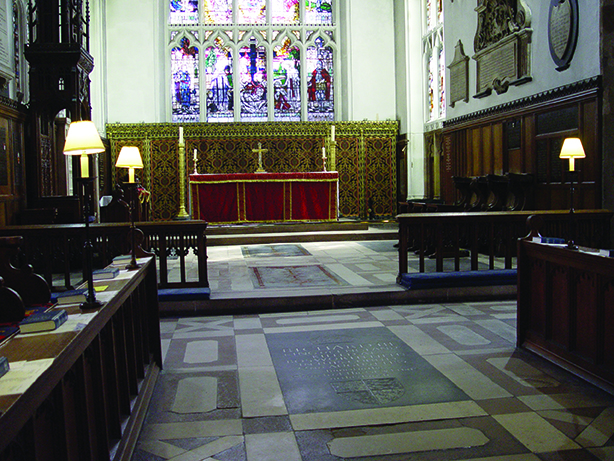181 heritage sites rescued but still 5,097 to go as this year’s ‘At Risk’ register is published

Historic England’s Heritage at Risk Register 2020 published on 15 October lists 5,097 historic buildings, monuments and sites that are in danger of being lost to decay or development.
The good news along with the publication of this year’s register is that 181 of the endangered sites listed last year have been rescued and are no longer on the list.
The bad news is that there are 216 new entries, including 90 places of worship, nearly half of them (37) added because they have suffered heritage crime, most commonly the theft of lead from the roof, as was highlighted at the Historic England Traditional Roofs conference in London in March (see NSS April issue).
The problem has become so bad in some parts of the country that Historic England has funded a Heritage & Cultural Property Crime Analyst role at Kent Police and a Heritage and Cultural Property Crime Researcher in OPAL (a national unit set up by the police to tackle serious organised crime thefts).
These roles will work with national police leads to help investigate and prevent criminal and anti-social behaviour which every year causes millions of pounds worth of loss and damage to the country’s historic heritage.
Also, a recent scheme called the Taylor Review Pilot saw £1.8million spent on places of worship in need. The project is run by Historic England and funded by the Department for Digital, Culture, Media & Sport. It has helped 396 listed places of worship in the two years since it was created.
The Heritage at Risk Register provides an annual snapshot of the health of England’s most valued historic places and those most at risk of being lost.
This year has been challenging, but Historic England says looking after and investing in the historic places that help to define our collective identity can contribute to the country’s economic recovery.
Duncan Wilson, the Chief Executive of Historic England, says: “Our historic places have also provided an anchor for local communities during these uncertain times. Heritage has a proven positive impact on people’s quality of life and 80% of residents believe local heritage makes their area a better place to live. It can also help support community resilience, instil pride and build confidence that communities can ‘build back better’.”
During the past year, Historic England has given nearly £9million in grants, including helping out specifically with projects and firms suffering as a result of the coronavirus pandemic with its focused funds for that purpose. The National Lottery Heritage Fund also diverted £50million to the heritage sector specifically to help ease coronavirus problems.
On this year’s Heritage at Risk Register are:
- 1,475 buildings or structures (Grade I and II* listed buildings and structural scheduled monuments across England plus Grade II listed buildings in London)
- 932 places of worship
- 2,090 archaeology entries (non-structural scheduled monuments)
- 103 parks and gardens
- 3 battlefields
- 3 protected wreck sites
- 491 conservation areas.
Due to the restrictions of Covid-19, Historic England has been able to assess sites and collect data only where it has been safe to do so.
It says this has given it a helpful temperature check of the condition of England’s historic environment in the past 12 months but it has not been possible to carry out analysis of trends, as it has in previous years.
To help make it easier to identify heritage at risk around the country, Historic England has created an interactive map (bit.ly/AtRiskReg) that has coloured dots representing each site. Click on the dot to find out what it is and then click through to its entry on the Heritage At Risk Register. You can also search for projects and places directly from the At Risk Register online (bit.ly/HEriskreg).
The Taylor Review Pilot run by Historic England has seen £1.8million spent to help 396 listed places of worship in the two years since it was launched.

